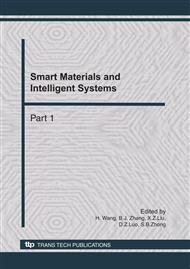p.482
p.487
p.493
p.499
p.503
p.509
p.515
p.521
p.527
Studies on Evaluation of Express Companies’ Emergency Logistics Capabilities
Abstract:
In this paper, based on theoretical research and empirical investigation, an index system is created for the evaluation of express companies’ emergency logistics capability from three types of capabilities, namely, emergency decision-making, implementing emergency plans and information assurance, by taking into consideration the characteristics of emergency logistics of express companies. In the issue of weight determination of the indices, given the subjectivity caused by individual evaluation, the approach of group decision making by multi-experts is introduced, which is the combination of we have introduced a group decision-making approach, that is to combine identically scaled weighting of judgment matrix and clustering weight determination. Multi-level fuzzy comprehensive evaluation method is chosen to evaluate express companies’ emergency logistics capabilities.Through empirical study, the validity and practicability of the index system and the evaluation method are both confirmed(verified).
Info:
Periodical:
Pages:
503-508
Citation:
Online since:
October 2010
Authors:
Price:
Сopyright:
© 2011 Trans Tech Publications Ltd. All Rights Reserved
Share:
Citation:


